
News Story
From unrequited love to fairytale romance, love stories are sprinkled through this year’s Festival. With inspirations ranging from folkloric monsters to canonical pieces of literature, these performances delve into the many different manifestations of romantic love.
Cécile McLorin Salvant: Ogresse
McLorin Salvant describes coming up with the concept for her song cycle Ogresse as follows: ‘I remember I was in Paris and wrote it down on a little piece of paper, the whole plot right there. She falls in love. She eats the guy. She dies.’ Despite the romance of the city, it’s fair to assume that this isn’t your typical love story.
The 17-song work tells the tale of the ogresse, a monstrous woman outcast by the local townspeople. The performance, told from four different perspectives, humanises the monster, charting her emotions of love, heartbreak and grief. It’s just a shame she’s also a cannibal, equipped with a mouth ‘the size of a planet’.
Salvant drew on an eclectic mix of inspirations to create this performance, with characters ranging from The Little Mermaid’s Ursula to a Haitian Goddess and music ranging from country and folk to jazz and Baroque. Described as Salvant’s Sweeney Todd, Ogresse mixes humour with empathy and beauty, creating a surprisingly moving performance.
Let me tell you by Hans Abrahamsen
It wouldn’t be a true collection of love stories without an appearance from Shakespeare. Hans Abrahamsen’s orchestral song cycle Let me tell you takes inspiration from not just the bard himself, but also contemporary writer Paul Griffiths.
Published in 2008, Paul Griffiths’ novella of the same name set out to tell the story of Shakespeare’s Ophelia, Hamlet’s love interest, from her perspective. Abrahamsen then literally gave voice to Ophelia, setting extracts from Griffiths’ novella to music with an operatic soprano.
The work is divided into three movements, representing Ophelia’s past, present and future. In her present, she is ‘deliriously in love’, declaring to Hamlet: ‘you have sun-blasted me / and turned me to light’. The emotion of the words is brought to life in a soaring and ethereal vocal score and spare orchestration which allows the soprano to shine. The result is an intensely moving and emotional depiction of a young woman in love, for which the Guardian named the piece the best classical music work of the 21st Century.
Chapter 3: The Brutal Journey of the Heart
L-E-V Dance Company have been performing their Love Cycle of three dance pieces since 2015 and brought the first two works of the cycle to the Festival in 2018. This preoccupation with love is perhaps fitting for a company with ‘lev’, the Hebrew word for ‘heart’, within their name.
Their Love Cycle is not quite a trilogy but a trio of standalone works exploring different elements of romantic love. While OCD Love charts the experience of obsessive love, and Love Chapter 2 is a devastating depiction of a breakup, this final work takes a step back and looks at the journey of a romantic relationship in its entirety.
Image gallery
A gallery carousel of 6 items
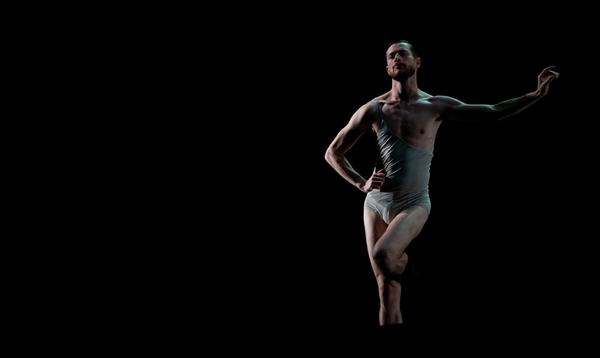
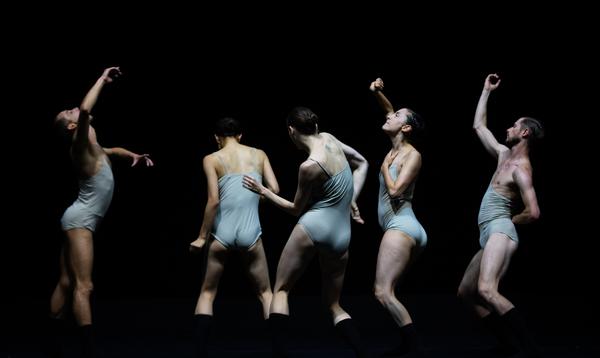
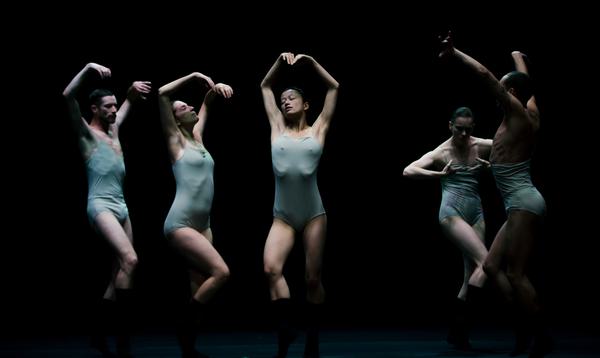
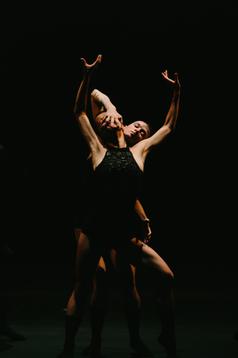
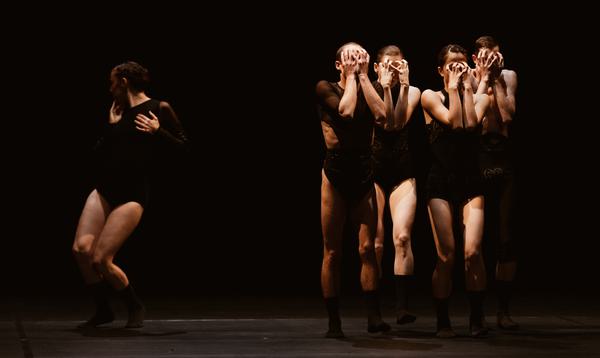
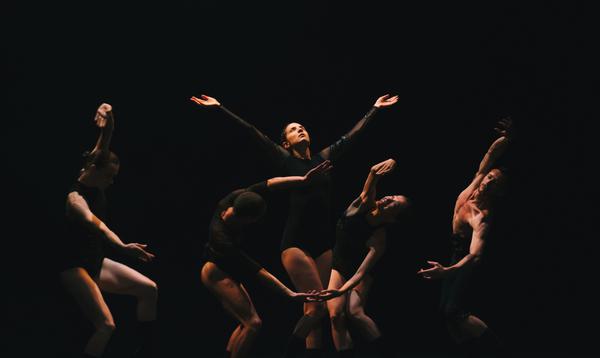
Chapter 3: The Brutal Journey of the Heart is inspired by Hanya Yanagihara’s novel A Little Life, particularly its idea that ‘no matter what gets damaged, life rearranges itself to compensate for your loss, sometimes wonderfully.’ The piece sees nine dancers journeying through the whole spectrum of emotions, reflected in the score with music genres ranging from blues and country to folk and Afrobeat. With minimal set and costumes of nude bodysuits decorated with large red hearts, everything is laid bare to allow the emotion of the piece to shine through.
Chapter 3: The Brutal Journey of the Heart is at the Festival Theatre from 13–14 August.
Julia Bullock & Bretton Brown
Soprano Julia Bullock has made waves in recent years for charting a new kind of career for an opera singe. She’s known for her emotive performances, heavily researching the music to deepen her understanding of it . When it comes to choosing to perform, she won’t accept an offer if she’s not feeling ‘psychologically ready to perform the material yet.’ There seems to be a two-way relationship between Bullock and her music, with the New York Times observing that ‘She serves the work she’s singing, even as she makes it better.’
Her recital at this year’s Festival is set to showcase this emotional range, featuring hand-picked love songs from throughout history, with German Lieder (poems set to classical music) performed alongside blues and jazz. The recital opens with Schubert’s ‘Suleika I’, a moving tale of devotion with words by Austrian poet Marianne von Willemer. It moves through Lieder by Wolf, including his work ‘Restless Love’ - it would appear for many of Bullock’s chosen composers the course of true love never did run smooth. The second half of the recital features icons of the American jazz and blues scene, including Billie Holliday, Nina Simone and Lovie Austin. Austin’s ‘Downhearted Blues’ is a devastating yet defiant tale of unrequited love, one that resonated so strongly with listeners that it launched Bessie Smith’s career and influenced the next 100 years of popular music. Billie Holliday’s ‘Our Love Is Different’ strikes a different tone, with the opening lines ‘It′s like a mighty symphony, I can feel its silver harmony’ seeming particularly fitting for a professional opera singer.
Julia Bullock & Bretton Brown perform at The Queen’s Hall on Wednesday 16 August.
The Magic Flute
The Magic Flute is a fairy-tale style story filled with revenge, backstabbing relatives and demanding trials, but Mozart’s most famous opera wouldn’t be complete without the two blossoming romances at its centre. Our hero, Prince Tamino, accompanied by the bird catcher Papageno, sets out to rescue beautiful Princess Pamina from the clutches of the evil Sarastro. Sent on this mission by Pamina’s mother, The Queen of the Night, Tamino immediately falls deeply in love with Pamina. While The Queen of the Night – instead of Sarastro – is unmasked as the real villain of the piece, lovelorn Tamino undergoes trial after trial to prove that he is worthy of Pamina’s love. During one of these trials, Papageno meets the love of his life – conveniently named Papagena – and all the lovers live happily ever after.
Mozart’s opera is perhaps most famous for The Queen of the Night’s aria, but his score never forgets the lovers central to the story. His score mirrors the emotional rollercoaster of falling in love – moving from adoration to heartbreak in mere moments. The characters all have a different perspective on romantic love throughout the story: Pamina and Papageno perform ‘Bei Männern, welche Liebe fühlen’, a duet about how love ‘adds spice to our lives’, while Papageno and Papagena’s duet ‘Pa-, pa-, pa-, Papageno’ adds comic relief in a song about being blessed with many, many children. Brought to life this summer with Ilker Arcayürek and Julia Bullock portraying Tamino and Pamina, Mozart’s music remains as moving as ever.
The Magic Flute: Concert Performance is performed at the Usher Hall on Saturday 12 August.
Are you in your feelings? By Kyle Abraham
Choreographer Kyle Abraham has played with many different genres in his works, ranging from drama to science fiction, but this summer he’s bringing his romantic comedy Are You In Your Feelings? to the stage. Seen as a kind of season two of An Untitled Love, the full-length work his company A.I.M brought to the 2022 Festival, this short piece continues his celebration of love and joy within the Black community.
Set to a soundtrack of R&B, soul and hip-hop songs, the work sees 12 dancers reflecting the varying emotional states attached to love and relationships.
The dancers perform solo, in pairs or in groups as relationships evolve and dissolve throughout the piece. The work explores the contradictions of love – it’s unclear at times whether the dancers are fueled by longing or grief, their relationships platonic, romantic or both. It’s also a work that celebrates self-love at the same time as romantic love, with fiery solos being just as absorbing as passionate duets.
Bluebeard's Castle
Bluebeard's Castle may be inspired by a fairy tale, but it's definitely not Disney. In Bartók’s original opera, Bluebeard brings home his new wife Judith to a dark castle, insisting she does not open certain doors. The tension builds throughout the opera as Judith opens a series of doors, each revealing something stranger than the last. The final door is opened, to reveal Bartók’s three former wives who have been trapped in the castle, and Judith is forced to follow them to the same fate. Bartók’s score is written in a minor key with heavy dissonance, adding to the overall eerie feel of the music.
Now this may not seem like a love story, but director Daisy Evans has reimagined this iconic opera in a new production by the groundbreaking opera company Theatre of Sound. Rather than a new couple, this production explores a long and happy marriage between Bluebeard and Judith. Judith is living with dementia, and the doors are replaced with a locked chest full of precious memories. As the chest is uncovered, the couple reminisce on their life together, even as Judith slips away from Bluebeard.
The production has received glowing reviews for its 'terrifying yet astonishingly beautiful account of Bartók’s original score', using the jarring sounds to explore the growing distance between the couple. This performance simultaneously makes your heart soar and breaks it over and over again.
Which of these love stories are you most excited to dive into? Share with us on Twitter and Instagram at @edintfest or using the hashtag #EdIntFest.
Read more...
Banners
©



